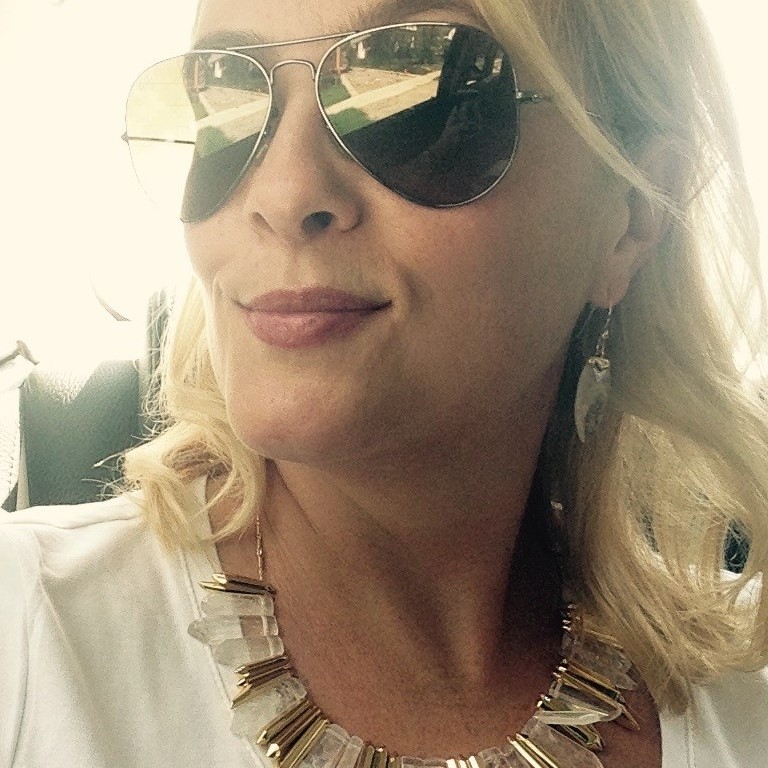How to Be an ‘Awakened’ Parent

Once upon a time Pink posted on Instagram that she was reading and loving a parenting book called The Awakened Family. I just knew I had to get my hands on it.
Eventually I did, and while I didn’t agree with everything the author, Shefali Tsabary, recommended, I was able to appreciate her work as having a very different perspective than most parenting books. The Awakened Family, though frustrating at times, gave me the opportunity to learn something new about the way I parent and my relationships with my kids. Here’s some of what I learned:
What Is an “Awakened” Parent and Do I Want to Be One?
1. Shefali Tsabary’s approach isn’t for everyone.
As a clinical psychologist specializing in family dynamics, the author’s teachings are influenced by Eastern philosophy (including Buddhism), which may not appeal to every reader. There’s also a poem at the end of every chapter which, combined with some of the content and much of the writing style, may lead some readers to feel it’s too new agey and “out there”.
I almost didn’t get past the book’s third sentence, which reads:
Once we have connected with our sovereign spirit, creating the space for our children to get in touch with their own spirit becomes the critical objective of parenthood.
A little later on, Tsabary writes children must, “… be free to actualize their individual destiny.” Spirits and destinies aren’t usually the base concepts for parenting books and despite believing and agreeing with much of what Tsabary was saying, I found myself wishing she would say it using plainer, more practical language. The reader’s willingness to absorb and appreciate Tsabary’s teachings may therefore be dependent on their ability to think about parenting and parenting books in a different and deeper way.
2. This is not a “what to do or say to your kids” book.
This is a “what to do to and for yourself” book. Some may interpret Tsabary’s focus on parent behaviour as a way of not holding children accountable for their actions but her bigger point is around the dynamics of the entire family unit and how the parents’ baggage must be addressed in order for them to parent in the healthiest possible way.
On discipline and setting boundaries, Tsabary writes, “All disciplinary issues with children occur because of a lack of discipline within the parents.” And then, “If we create clear, consistent boundaries for our children, the need for disciplinary strategies is unnecessary.” I’ll admit, she almost lost me here but two pages later, when she suggests a handful of “life-enhancing boundaries” such as, “Respect for oneself: self-care through hygiene and sleep…” and, “Respect for one’s environment: a tidy room and home…” I not only understood, but felt like this was advice I could truly use in practical situations, such as when my daughter asks why it matters that I can’t see the floor of her room, or why she has to brush her hair before school.
3. The buttons our kids push are directly related to the experiences of our own childhood.
The book’s main focus is the parent-child dynamic. To be an awakened parent, Tsabary encourages us to examine own our personal issues, fears, and biases and to practice self-awareness when reacting to and parenting our children.
As an adoptive parent, this is pretty much Rule #1 in all of the training, coaching, and counselling we undertook before adopting: identify your own issues and check them at the door because they will absolutely play a role in how you parent whether you want them to or not, and whether you intend for them to or not. This is true for every parent but most don’t have the benefit of thinking it through with a trained professional ahead of time. Tsabary’s point is a good reminder to examine some of the unconscious biases and experiences we bring to parenting.
4. Our role as parents is to help our children become who they’re meant to be…
… which is, of course, separate from our own expectations of them as well as our own failures and the unrealized desires we had for ourselves. Tsabary believes our job as an awakened parent is to support and guide our kids towards their own “destinies” without heavy-handed control. This might be difficult for those used to managing every aspect of their children’s lives in an attempt to help them learn, grow, and succeed. It’s important to note, however, that the author isn’t advocating a completely hands-off method, but rather a more strategic and mindful approach. As an advocate of “free-range” child-rearing I enjoyed learning from someone who believes a parent’s role is to coach and guide, not dictate and control.
5. Parenting may not come naturally and that’s okay.
If you’re struggling with how to behave and react in challenging parenting situations, and if you feel like you never get it right, Tsabary has your back. She writes, “It’s mistaken to imagine that parenting is something that’s easy, fun and rewarding. While some aspects of parenting are indeed all of those things, I believe this widespread cultural idea places considerable stress on parents.”
Can I get an amen?
The author’s assertion that we must let go of our “romanticized” and “fantasized” ideas and “parent the child we have” will hit home for many of us who are confounded by how different our children are from us (and from each other) and how hard it can be to connect with and understand them.
Bursting the bubble of idealism, she writes, is an essential part of parenting because it involves rejecting the strain and shame of feeling like you’re doing it wrong or that it “should” be easier.
Parenting is hard and we do ourselves and others a disservice when we pretend otherwise. Raising kids requires constant unlearning and relearning. Accepting this concept and rejecting the notion that we should automatically have all the answers will feel like a weight being lifted from our shoulders.
















